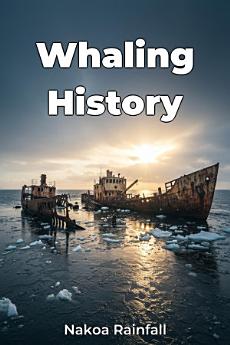Whaling History
Über dieses E-Book
The book adopts a chronological and thematic approach, tracing the progression of whaling from early indigenous practices to industrial-scale operations. It details the technological advancements that intensified whaling efforts and analyzes the ecological consequences, including population declines and ecosystem disruptions. The narrative culminates with an examination of modern conservation efforts, such as the International Whaling Commission, and the challenges of balancing conservation with indigenous needs.
Drawing upon historical logs, scientific data, and indigenous knowledge, the book provides a multifaceted perspective. It serves as a critical case study of the interplay between economic activity, ecological vulnerability, and the urgent need for conservation strategies. By understanding past mistakes, Whaling History emphasizes informed decision-making for current environmental challenges, making it valuable for students, researchers, and anyone interested in environmental history.








